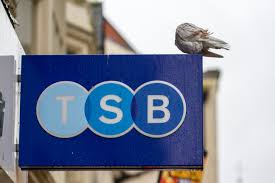Gross domestic product (GDP) in the UK has jumped by 0.2% in the three months to August, after showing no growth in July, the Office for National Statistics (ONS) has revealed.
Over the longer term, the ONS estimated that GDP increased by 0.8% in the same period compared to the three months to August 2023, while also jumping by 1% in August 2024 when compared with the same month last year.
Personal finance analyst at Bestinvest, Alice Haine, has said that the uplift in activity suggests the economy’s "strong start" in the first half of the year "won’t be abandoned altogether in the second half".
Haine added: "August’s 0.2% expansion is likely to be comforting for the new Government as it looks towards its first Budget on October 30 when Chancellor Rachel Reeves is expected to deliver a raft of ‘painful’ tax rises. The positive growth figure may even help to quell the Government’s doom-mongering about the state of the country’s finances, something that has had a detrimental effect on business and consumer confidence in recent weeks.”
In terms of output, all main sectors saw monthly growth in August, with production output increasing by 0.5% month-on-month, after dropping by 0.7% in July.
Three of the four main sectors in production saw output growth in August, with the largest contributor being manufacturing, which recorded growth of 1.1%.
Construction and services output also grew by 0.4% and 0.1% respectively in this period.
In the construction sector, five of the nine sub-sectors saw growth in August, while seven of the 14 sub-sectors in the services industry recorded negative contributions.
Head of financial analysis at AJ Bell, Danni Hewson, added: "All sectors were feeling spritely and with such a focus on planning reform and housebuilding targets it will be pleasing that both new housing work and private commercial work got a boost. We already saw the data that showed retailers enjoyed a resurgence of sales in August in spite of the riots which forced some businesses to shut up shop for several days."
Despite the 0.2% increase in GDP, Hewson believes that there is some trepidation among analysts, who believe that more needs to be done to ensure that this growth was not a one-off.
Hewson concluded: "The broader picture is of a country still trudging along, finding it hard to change gear. And there’s concern that August was a blip, and that September’s numbers will herald a return to the flatline that seems to have become the new normal.
"We know business confidence took a hit after Keir Starmer’s warnings that things would get worse before they get better and amid continuing concern about what the Chancellor’s first Budget has in store. News of additional private investment in energy infrastructure is massively welcome and the big push to deliver clean power by 2030 does create an opportunity for sustainable change."
Latest News
-
Residential property transactions fall 24% month-on-month
-
Later life lending loans jump 5.1% in Q4 2025
-
Mortgage Awards 2026: Winners announced
-
FCA outlines proposals to close gaps in borrowers’ credit files
-
St. James’s Place closes 2025 with record FuM
-
Average LTV on UK mortgaged home drops to 59% – IMLA
Mortgage Advice Bureau and AI in the mortgage sector
Chief executive officer at Mortgage Advice Bureau, Peter Brodnicki, and founder and managing director at Heron Financial, Matt Coulson, joined content editor Dan McGrath to discuss how Mortgage Advice Bureau is using artificial intelligence to make advancements in the mortgage industry, the limitations of this technology and what 2026 will hold for the market
Perenna and the long-term fixed mortgage market

Content editor, Dan McGrath, spoke to head of product, proposition and distribution at Perenna, John Davison, to explore the long-term fixed mortgage market, the role that Perenna plays in this sector and the impact of the recent Autumn Budget
NEW BUILD IN FOCUS - NEW EPISODE OF THE MORTGAGE INSIDER PODCAST, OUT NOW

Figures from the National House-Building Council saw Q1 2025 register a 36% increase in new homes built across the UK compared with the same period last year, representing a striking development for the first-time buyer market. But with the higher cost of building, ongoing planning challenges and new and changing regulations, how sustainable is this growth? And what does it mean for brokers?
Does the North-South divide still exist in the UK housing market?

What do the most expensive parts of the country reveal about shifting demand? And why is the Manchester housing market now outperforming many southern counterparts?
In this episode of the Barclays Mortgage Insider Podcast, host Phil Spencer is joined by Lucian Cook, Head of Research at Savills, and Ross Jones, founder of Home Financial and Evolve Commercial Finance, to explore how regional trends are redefining the UK housing, mortgage and buy-to-let markets.
In this episode of the Barclays Mortgage Insider Podcast, host Phil Spencer is joined by Lucian Cook, Head of Research at Savills, and Ross Jones, founder of Home Financial and Evolve Commercial Finance, to explore how regional trends are redefining the UK housing, mortgage and buy-to-let markets.
© 2019 Perspective Publishing Privacy & Cookies











Recent Stories